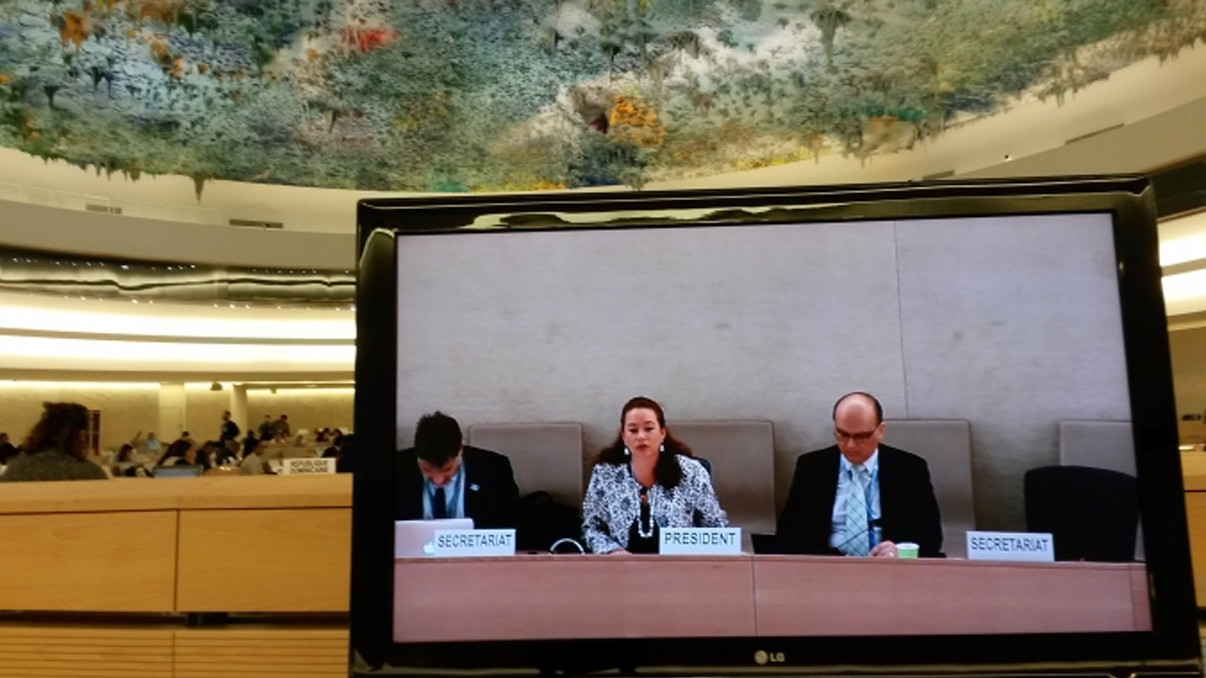
After years of wrangling, the possibility is once more emerging of an international treaty on business and human rights.
Over the next few months, Ecuadorian Ambassador María Fernanda Espinosa, Chair-Rapporteur of the snappily-titled UN Intergovernmental Working Group on Transnational Corporations and other Business Enterprises with Respect to Human Rights (IGWG) is expected to publish the first draft of a treaty.
While the exact scope and content of the treaty is not yet known, stakeholders emphasise that it must be complementary to the already existing and widely applied UN Guiding Principles on Business and Human Rights (UNGPs) – which are voluntary yet have been endorsed by many states and businesses worldwide – and the ILO instruments.
In this blog, we consider how the negotiations over the treaty have been developing since the IGWG was established and what issues we can expect to see raised at the third IGWG session later this year in October, where the draft treaty will be discussed for the first time.
How it all started
Throughout the last decades, several attempts have been made at agreeing an international treaty creating legal obligations on business and human rights. These have largely failed due to concern over how such a treaty would be implemented and regulated as well as opposition from businesses and various Western states, who favour a good practice/soft law approach.
The latter approach was encapsulated in the UNGPs which were adopted by the UN Human Rights Council in 2011 and have enjoyed wide acceptance in the business and human rights world, with many states adopting – or being in the process of adopting – National Action Plans to implement them. At Ergon, we regularly advise companies on how to translate the UNGPs into practice and provide support to their implementation in the business.
Nonetheless, slow movement from certain states and businesses to take action under the UNGPs has led to frustration from some civil society bodies and continuing lobbying for a legally binding instrument. In 2014, the Human Rights Council adopted a resolution establishing the IGWG to draft the treaty, with 20 votes in favour, opposition from 14 states and 13 abstentions.
How can the treaty add to the UNGPs?
Given the wide acceptance of the UNGPs, what could a treaty bring to the table? Its proponents highlight the treaty’s potential with regards to closing legal gaps regarding the extraterritorial obligations of companies, particularly the duty to provide access to remedy. This is especially relevant in the current context of increasingly global value chains. And certainly the ‘remedy’ pillar of the UNGPs probably remains the least well-implemented or understood element.
Initially, opposition to a treaty centred on concerns over it possibly undermining the UNGPs and other standards, such as those set out in ILO Conventions, yet there seems to be a building consensus that the treaty indeed can, and must be, complementary to these tools.
Given the UNGPs’ self-regulatory nature and lack of an accountability mechanism, some activist stakeholders view the treaty as a necessary additional step towards protecting and respecting human rights through the establishment of binding international arbitration mechanisms for breaches of human rights. Nonetheless, as John Ruggie himself put it, the treaty remains a polarising topic and the negotiations over it are likely to take several more years, as many states continue to oppose a hard law approach to business and human rights.
Progress of negotiations: key challenges identified
During the consultations that took place in the first two IGWG sessions, one of the main issues raised was whether to apply the treaty only with relation to transnational corporations or whether to extend it to all other business enterprises (that is, including domestic businesses and SMEs). The EU was a strong proponent of the latter, but its proposal was opposed by the vast majority of states. This discussion is heightened by the lack of a common definition of transnational corporations. This issue remains unresolved.
Another challenge addressed in the IGWG sessions is the implication of international trade and investment agreements on human rights. Many stakeholders argued that Investor-State dispute settlement proceedings included in trade agreements result in an imbalance of power as they provide a remedy for businesses only. Building on this, participants at the IGWG sessions discussed the potential that the treaty could include a hierarchical clause whereby human rights have primacy over trade and investment agreements.
Going forward
With the upcoming third session of the IWGW in October 2017, NGOs are pushing for the key elements of the draft treaty to be made available publicly as soon as possible, and June has been mentioned as a tentative date for the first elements to be published.
We can expect the third IWGW session in October to discuss the scope and content of the treaty. This will be followed by the UN Forum on Business and Human Rights soon after in November 2017.
So the last few months of this year will see plenty of dialogue within the business and human rights world. And we can expect the discussions to be heated, as businesses, states, workers and civil society put the draft elements of the treaty under the spotlight and react to the suggested obligations and rights of all parties involved.
There is a long way to go.